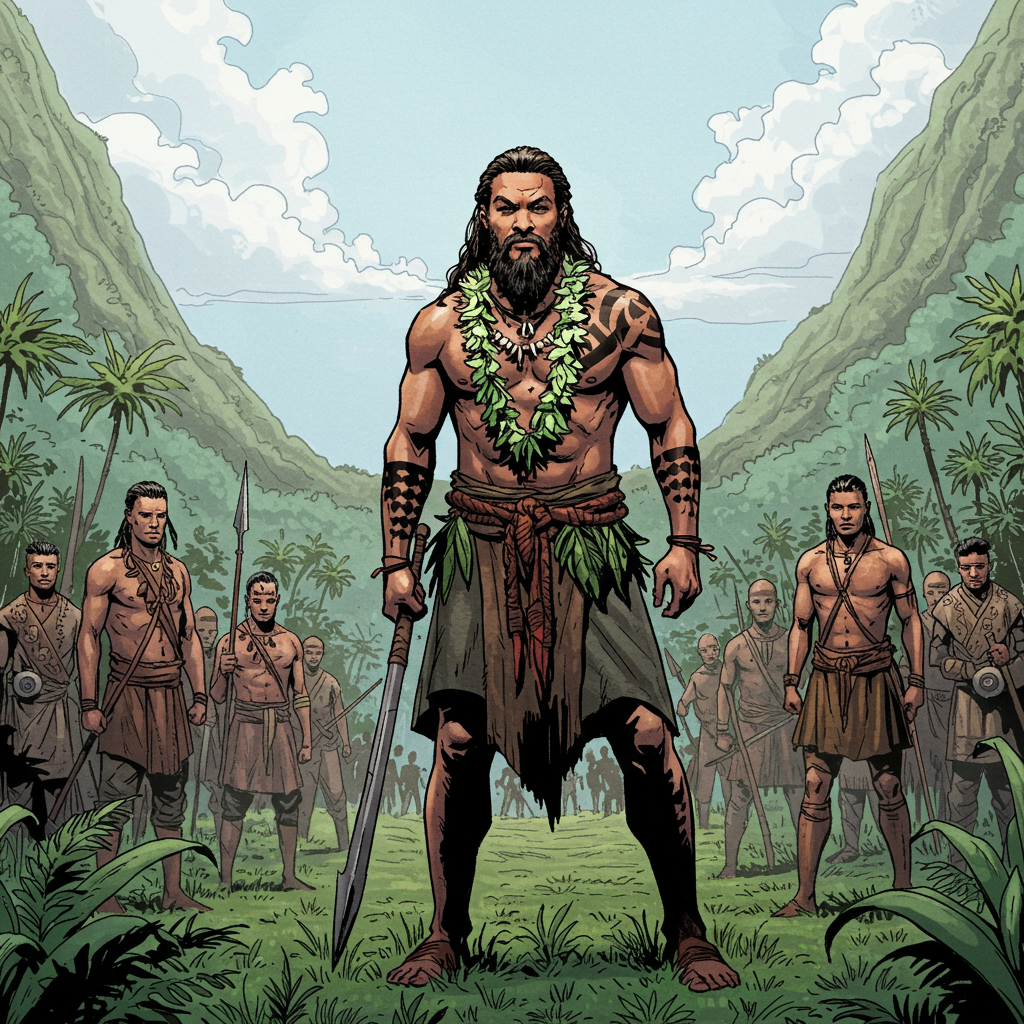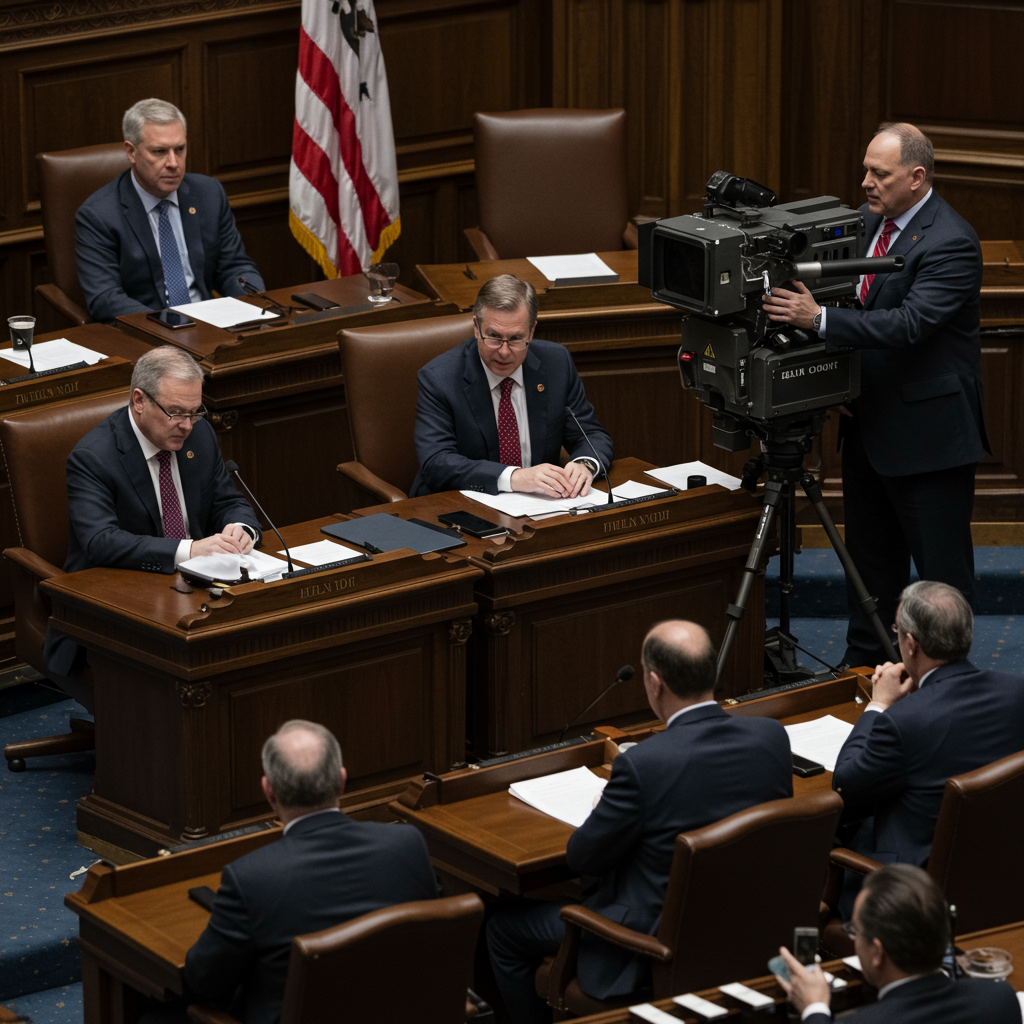Apple TV+ introduces a captivating historical drama, Chief Of War, that takes viewers deep into the heart of pre-colonial Hawaii. This ambitious series, co-created by and starring Jason Momoa, offers a powerful and deeply personal exploration of the Hawaiian islands’ struggle for unification in the late 18th century. More than just an action-packed saga, Chief Of War is a meticulously crafted narrative that reveals little-known historical facets, driven by the profound cultural connection of its creators and predominantly Polynesian cast. It’s a compelling journey that is both expansive in its historical scope and intimate in its character portrayal, promising a unique and vital viewing experience for audiences worldwide.
Unearthing Forgotten Histories: The Premise of Chief Of War
For generations, Hawaii has been celebrated globally for its stunning natural beauty, drawing countless tourists and serving as picturesque backdrops for films and television. Yet, many productions merely scratch the surface of Hawaiian culture, often reducing rich traditions like ohana (family) or aloha spirit to superficial tropes. Chief Of War shatters this trend. Co-creators Jason Momoa and Thomas Pa’a Sibbett embarked on a mission to bring to light a critical, often overlooked period in their ancestors’ history: the violent era preceding the Kingdom of Hawaii’s unification and the looming threat of colonization. This powerful narrative illuminates the enduring impact of these events, felt even centuries later.
The series centers on Ka’iana, a formidable war chief from Maui, portrayed by Momoa. His journey begins as he reluctantly rejoins the army he once abandoned, aiming to conquer O’ahu. However, Ka’iana soon uncovers the true, sinister ambitions of Maui chief Kahekili (played by the terrifying Temuera Morrison), who seeks to dominate all the islands. Refusing to be a pawn in this power struggle, Ka’iana flees to the ocean. He is rescued by English traders and surveyors, a pivotal encounter that opens his eyes to the wider world and the insidious nature of European colonization. His forced adaptation to living among these foreigners, who cruelly label Native Hawaiians “Sand Savage,” marks a profound shift in his perspective.
Ka’iana’s Transformative Journey
Ka’iana becomes the first Hawaiian warrior to journey beyond the islands. This experience profoundly alters his understanding of the world. During a trip to the Spanish West Indies, he witnesses the horrific realities of the slave trade and arms trafficking. He sees a world where profit overrides all other values, a stark contrast to his own upbringing. In his homeland, gods are revered, and prophecies are fulfilled. This dramatic exposure to the “pale-skin” ethos of greed and destruction fills him with a sense of urgency.
Upon his return, Ka’iana frantically warns his people about the impending European invasion. “There is much suffering,” he declares, cautioning that “The pale-skin honors no gods of land. They steal from it, leaving many sick and hungry without homes. Cruel men with strong weapons and the ships, they will be coming soon. We must find a king who can face them.” Despite his dire warnings, Hawaii’s King Kamehameha (Kaina Makua) and his court initially dismiss his fears, a tragic oversight that ultimately proves costly. Ka’iana’s internal conflict—torn between his Kānaka Maoli heritage and the grim realities of the “pale-skin” world—becomes a central dramatic tension. He embodies contradictions: a believer and a skeptic, fluent in both Hawaiian and English, a traditional warrior who must adapt to firearms. Momoa expertly navigates these complexities, creating a compelling portrait of a leader burdened by duty and sacrifice.
Jason Momoa’s Dual Role: Visionary and Warrior
Jason Momoa has long expressed a deep desire to tell the story of Hawaii’s unification, a lifelong ambition stemming from his Kānaka Maoli heritage. Alongside Thomas Pa’a Sibbett, he patiently cultivated the necessary star power and industry experience as writers and producers to tackle such a monumental tale. The result, Chief Of War, showcases Momoa not only as a leading actor but also as a visionary force behind the camera. His reputation, forged through global franchises like Game of Thrones, Fast X, and the DC Universe as Aquaman, now lends significant weight to this deeply personal project.
Momoa’s commitment to Chief Of War is evident in every frame. He directs the climactic season finale, “The Black Desert,” a visually stunning sequence filmed on a massive lava field, near real-life volcanic eruptions. This ambitious episode, which he co-wrote with Sibbett, masterfully captures the brutal realities of the era through intense and unsparing fight sequences. This rare opportunity allows Momoa to demonstrate his full range as both a dramatic actor and a skilled director, elevating the series beyond typical historical dramas. His passion ensures an authentic and emotionally resonant portrayal of a pivotal moment in Hawaiian history.
Crafting Authenticity: Language and Cultural Immersion
A testament to the show’s dedication to authenticity is its groundbreaking approach to language. Sibbett initially insisted that the first two episodes be written entirely in Hawaiian. While this creative choice made perfect sense given that external influences only arrive later, it faced resistance from executives. However, the showrunners held firm, allowing for a nuanced portrayal of English’s subtle integration into Native Hawaiian life as the season progresses. The way Native characters fluidly code-switch between languages later in the season provides as much insight as their words, reflecting evolving dynamics of assimilation, resistance, and pragmatism. Some characters embrace English for protection or political gain, while others staunchly refuse to learn the language of their oppressors.
This linguistic authenticity is more than a stylistic choice; it’s an act of cultural reclamation. For generations, Native populations, including Hawaiians, have endured the systematic suppression of their cultural customs and languages. Momoa and his collaborators are part of a growing movement of descendants actively striving to reclaim their ancestral heritage. In an era where historical narratives are often suppressed or distorted, Chief Of War stands as a timely and vital reminder that the most painful parts of history—especially indigenous history—must never be erased.
A Star-Studded Polynesian Ensemble
While Ka’iana serves as the emotional core of Chief Of War, the series’ strength is undeniably bolstered by its exceptional ensemble cast, composed almost entirely of Polynesian actors. This deliberate casting choice enhances the show’s authenticity and provides a powerful platform for underrepresented talent. Alongside Temuera Morrison’s terrifying portrayal of the power-hungry Kahekili (named after the god of thunder), the cast features other compelling performances.
Cliff Curtis embodies the rival chieftain Keoua, an antagonist driven by an unwavering resolve to reclaim what he believes is rightfully his, even if it means confronting his own kin. Luciane Buchanan, known for The Night Agent, brings a quiet strength to Ka’ahumanu, King Kamehameha’s wife, who defiantly pushes against societal constraints to become her husband’s most influential political advisor. Te Ao o Hinepehinga delivers a powerhouse performance as Kupohi, Ka’iana’s wife, who grapples with the heartbreaking realization that the man who returns to Hawaii is fundamentally changed by his experiences abroad. Though some of Ka’iana’s immediate family relationships initially lack focus after his abrupt departure, these connections powerfully resonate in the final episodes, delivering both rewarding and poignant payoffs.
Beyond the Battlefield: Intimate Character Arcs
Beyond the grand-scale battles and political maneuvering, Chief Of War excels at exploring the intimate human cost of conflict and colonization. The character arcs delve into themes of identity, loyalty, and survival. Ka’iana’s internal struggle between his traditional values and the harsh realities of the outside world is mirrored by the challenges faced by those he leaves behind. The series thoughtfully examines how individuals, families, and communities adapt—or resist—in the face of existential threats. It’s not just about warfare; it’s about the preservation of a people, their spirit, and their future against overwhelming odds. This focus on individual journeys within a sweeping historical context makes the show emotionally resonant and universally relatable.
The Road Ahead: Potential for Future Seasons
The ambitious first season of Chief Of War culminates in “The Black Desert,” a visually spectacular finale that sets the stage for future installments. Directed by Jason Momoa, this episode, co-written with Sibbett, leaves viewers eager for more. The narrative arc carefully builds towards a potential second batch of episodes, hinting at further exploration of Hawaii’s unification and its ultimate confrontation with the forces of colonization. The creators have laid a rich foundation, suggesting that Ka’iana’s journey and the fate of the Hawaiian kingdoms are far from concluded. The potential for expanding this vital story offers exciting prospects for historical drama fans and those keen to see more authentic indigenous narratives on screen.
Why Chief Of War Resonates Today
Chief Of War arrives at a crucial moment. In many parts of the world, including the United States, efforts to suppress or sanitize historical narratives are ongoing. The series serves as a powerful counter-narrative, asserting the undeniable truth and enduring relevance of indigenous history. By meticulously portraying the struggles, resilience, and unique cultural identity of Native Hawaiians, the show underscores the importance of historical accuracy and cultural preservation. It’s a reminder that history, particularly its most painful chapters, cannot be simply erased. The story of Chief Of War is not merely entertainment; it is an act of education and an invitation to reconnect with an important, often overlooked, part of global history. It champions the idea that genuine value comes from embracing complexity and truth.
Frequently Asked Questions
What is the historical significance of Chief Of War for Hawaiian culture?
Chief Of War holds immense historical significance by focusing on the pre-colonial unification efforts of the Hawaiian kingdoms in the late 18th century. It delves into a lesser-known period of intense internal conflict and the burgeoning threat of European colonization. The series highlights the importance of cultural reclamation, showcasing authentic Hawaiian language (and its eventual code-switching with English) and a predominantly Polynesian cast, which provides a vital platform for indigenous storytelling and history that has often been suppressed.
Where can I watch Chief Of War, and when did it premiere?
Chief Of War is an Apple TV+ exclusive series. It premiered on August 1, 2025. Subscribers to Apple TV+ can stream the historical drama, following the compelling journey of Jason Momoa’s character, Ka’iana, as he navigates the unification of warring Hawaiian factions and confronts the looming specter of colonization.
Why is Jason Momoa’s dual role in Chief Of War important for the series’ authenticity?
Jason Momoa’s dual role as star and co-creator/director is crucial for Chief Of War‘s authenticity and impact. As a Kānaka Maoli (Native Hawaiian), Momoa brings a deeply personal connection and lifelong ambition to tell this specific story. His direct involvement behind the camera, including co-writing and directing key episodes, ensures the narrative respects and accurately portrays Hawaiian culture, language, and historical nuances. This hands-on approach from someone with a genuine heritage connection elevates the show beyond a typical Hollywood production, imbuing it with genuine value and cultural integrity.
Conclusion
Chief Of War is more than just a captivating historical drama; it is a vital act of storytelling. Jason Momoa, alongside Thomas Pa’a Sibbett and a talented Polynesian cast, has delivered a series that is as meticulously researched as it is dramatically compelling. By immersing viewers in the rich history and complex struggles of pre-colonial Hawaii, the show offers a rare and powerful glimpse into a foundational period. Its emphasis on cultural authenticity, linguistic integrity, and the enduring resilience of the Hawaiian people makes Chief Of War an essential watch. It not only entertains but also educates, inspiring a deeper appreciation for diverse histories and challenging prevailing narratives. Don’t miss this groundbreaking addition to Apple TV+’s impressive lineup.



